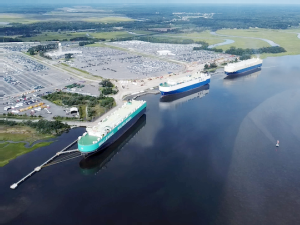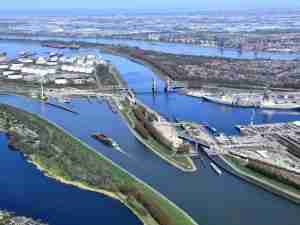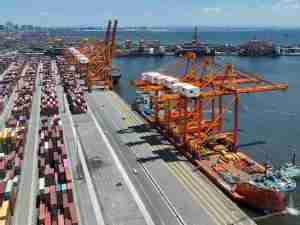The recent settlement of a legal challenge to the Port of Long Beach’s Clean Trucks Program is good news, not only for the Port, but also for the cause of clean air. Why? Because the lawsuit was a potential roadblock. The settlement, however, clears the way for the Port and the trucking industry to move forward, together, with a program that has been highly successful in reducing air pollution.
The settlement reached earlier this week comes on the heels of the one-year anniversary of the Clean Trucks Program. In its first 12 months, the program has achieved a reduction of air pollution far beyond what was expected by this point.
In an industry where harbor drayage trucks are kept in service for decades, the Clean Trucks Program has already put more than 5,000 new, clean trucks into port service. These big-rigs, which meet the federal Environmental Protection Agency’s strict 2007 emissions standards, are doing more than half of the truck hauling at the Port of Long Beach.
With the settlement of the lawsuit brought by the American Trucking Associations, the Port is more determined than ever to pursue and achieve the goals of the Clean Trucks Program.
Yet, we’re facing criticism from one of the nation’s largest environmental groups, the Natural Resources Defense Council (NRDC), which says we’re abandoning our environmental goals by settling this lawsuit. That is simply false.
In fact, our environmental goals are being achieved much faster than expected. By January 1, 2010, the program will be nearly two years ahead of schedule in reducing truck air pollution by almost 80 percent. The NRDC said as much less than a month ago, in a news release praising the program for getting dirty trucks off the road.
The new system, agreed to by the ATA in the settlement, simplifies and streamlines our already successful Clean Trucks Program. It requires trucking companies to submit the same detailed information and enter into a binding contract to comply with all environmental, safety and security requirements in order to obtain access to Port terminals. Under the new registration system, trucking firms still will be required to register their trucks and equip them with electronic devices so we can verify that only clean trucks that meet our tough standards are entering our shipping terminals.
The NRDC’s real objection to our program has nothing to do with clean air. By aligning itself with the Teamsters, who have been very public about their campaign to unionize port truckers nationwide, the NRDC is pursuing an agenda beyond air quality.
Now, as before, our top priority is achieving cleaner air. But we’re determined to do it in a way that does not compromise the trucking industry’s ability to move cargo. By allowing both employee drivers and independent owner-operators in our program, we’re letting the industry determine how it can best achieve our environmental standards.
We don’t have any objection to employee drivers. In crafting the program, we simply decided to give the industry a choice. Under our plan, both larger firms and small business owners have the right to operate.
We can accept differences of opinion on that issue – but we won’t accept the NRDC’s false criticism that the ATA settlement is somehow compromising our environmental goals.
The program is working – well ahead of schedule. The settlement allows us to keep cleaning the air, and removes the last of the legal challenges to this very important tool for reducing air pollution.
We believe we have created a strong, sustainable model that has brought and will continue to bring clean trucks into port drayage.
Our goal with the Clean Trucks Program was to dramatically reduce the smog-forming and diesel particulate air pollution from port-related trucking. We’ve done that, and the settlement assures that we can continue to improve air quality while allowing cargo to keep moving as the air gets cleaner.










